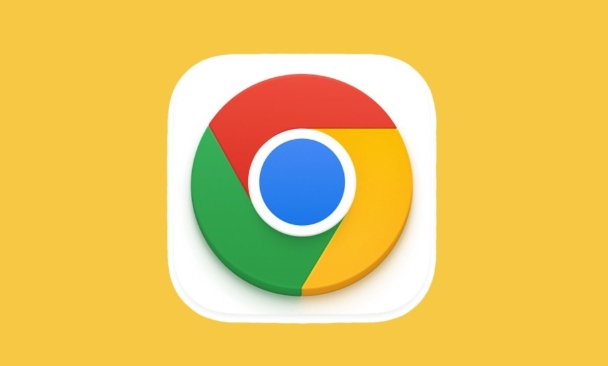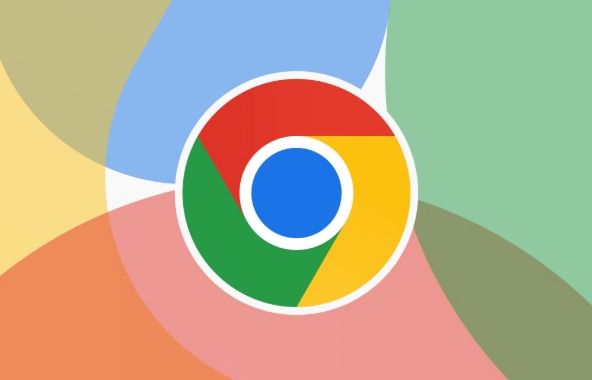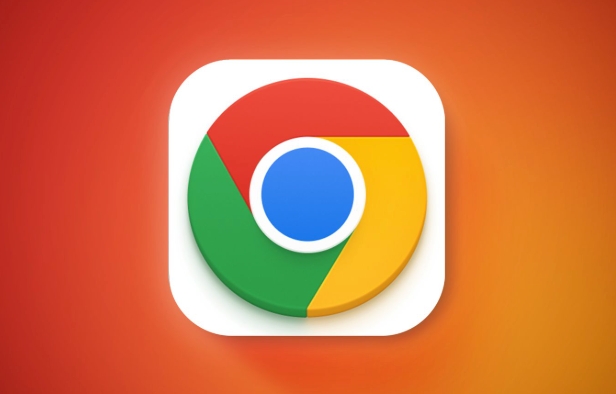How to stop Chrome from automatically opening PDF files
Jul 21, 2025 am 12:09 AMTo get Chrome to download directly instead of opening when clicking on the PDF link, 1. Enter chrome://settings/content/pdfDocuments and check "Download PDF files instead of automatically opening them in Chrome"; 2. Check whether there are plug-ins such as Lightpdf or Smallpdf interfering behavior, and try to disable testing; 3. Use the developer tools to copy the link and paste the new tag to trigger the download. The above methods can be selected according to the situation.

Chrome automatically opens PDF files and sometimes it can interfere with your browsing experience, especially when you prefer to download files directly rather than view them in your browser. The good news is that this setting can be changed and it is not difficult to operate.

Modify Chrome's PDF default behavior
Chrome itself has a built-in PDF viewer, which will open PDF files in the browser by default. But you can change it to automatically download it after clicking on the link instead of opening it directly. The method is as follows:
- Open Chrome browser, enter:
chrome://settings/content/pdfDocuments - On this page you will see an option: " Download PDF files instead of automatically opening them in Chrome "
- Check this option, then click any PDF link and download it directly instead of opening it in the browser.
This setting is suitable for PDF files on most websites, but some web pages may be forced to be viewed online, so you need to start from another perspective.

Check browser extensions or plug-ins
Sometimes, PDFs may be automatically opened not because of the browser default settings, but because some plugins affect behavior. For example, ad blocking tools, document enhancement plug-ins, etc., they sometimes "take over" the way PDFs are opened.
You can disable plug-in testing one by one in Chrome's extension management page ( chrome://extensions/ ) to see if it is caused by a certain extension. Especially those plug-ins related to document processing, such as "Lightpdf", "Smallpdf", etc., are worth checking it before verifying the effect.

Use developer tools to bypass automatic opening
If you just occasionally encounter a specific web page that always forces the PDF to be opened online, and you do not want to modify the global settings, you can temporarily intervene with the developer tools.
- Right-click on the PDF download link, select "Check" or press F12 to open the developer tools
- Switch to the "Network" tab
- Click on the link again and you should be able to see the PDF file in the network request list
- Right-click the request and select "Copy link address"
- Paste the copied link to a new tab and open it, which usually triggers download instead of preview
This method is suitable for temporary emergency response and does not require changes to the settings, but requires a little hands-on ability.
Basically these are the methods. Changing the settings is the most direct, but if you don’t want to move the global settings, you can also try disabling the plug-in or using developer tools to temporarily solve it.
The above is the detailed content of How to stop Chrome from automatically opening PDF files. For more information, please follow other related articles on the PHP Chinese website!

Hot AI Tools

Undress AI Tool
Undress images for free

Undresser.AI Undress
AI-powered app for creating realistic nude photos

AI Clothes Remover
Online AI tool for removing clothes from photos.

Clothoff.io
AI clothes remover

Video Face Swap
Swap faces in any video effortlessly with our completely free AI face swap tool!

Hot Article

Hot Tools

Notepad++7.3.1
Easy-to-use and free code editor

SublimeText3 Chinese version
Chinese version, very easy to use

Zend Studio 13.0.1
Powerful PHP integrated development environment

Dreamweaver CS6
Visual web development tools

SublimeText3 Mac version
God-level code editing software (SublimeText3)

Hot Topics
 How to stop Chrome from updating in the background on Mac
Jul 21, 2025 am 12:41 AM
How to stop Chrome from updating in the background on Mac
Jul 21, 2025 am 12:41 AM
To prevent Chrome from automatically updating on Mac, it can be done by disabling update services, modifying permissions, and restricting network access. 1. Use terminal commands to disable the GoogleSoftwareUpdate daemon to prevent background updates; 2. Modify update directory permissions to prevent Chrome from starting the update process by itself; 3. Restrict Chrome's outbound network connection through system firewall or third-party tools to further eliminate update requests. Using these methods in combination can effectively prevent Chrome from being automatically updated.
 How to fix Chrome's spell checker not working
Jul 20, 2025 am 12:03 AM
How to fix Chrome's spell checker not working
Jul 20, 2025 am 12:03 AM
When Chrome spelling check fails, you can troubleshoot and fix it by following the following steps: 1. Confirm that the "Use Spelling Check" function is enabled and check whether the corresponding language is enabled in the language settings; 2. Adjust the input language order, delete the redundant language, and ensure that the main language enables spelling check; 3. Close possible conflicting extensions, especially syntax or translation plug-ins; 4. Update Chrome to the latest version and check the operating system updates. If it still doesn't work, try resetting Chrome settings.
 Why can't I select text in my PDF with Adobe Acrobat?
Jul 20, 2025 am 12:22 AM
Why can't I select text in my PDF with Adobe Acrobat?
Jul 20, 2025 am 12:22 AM
If you cannot select PDF text in Adobe Acrobat, it is usually because the content itself is not optional text. Common reasons include: ① PDF is a scanned image or an image-based file. At this time, Acrobat's OCR function needs to be used for identification; ② The text is located in an embedded object or layer, you can try to click on the text block using the TouchUp text tool; ③ PDF has set security restrictions, you can view permissions in the properties and enter the owner's password to unlock the restrictions; ④ Font embedding problems or file corruption, you can try to export it as an image, re-export it by printing, or open it with another PDF editor. These issues have nothing to do with Acrobat itself, but are determined by how PDFs are created.
 How to stop Chrome from automatically opening PDF files
Jul 21, 2025 am 12:09 AM
How to stop Chrome from automatically opening PDF files
Jul 21, 2025 am 12:09 AM
To let Chrome download directly instead of opening it when clicking on the PDF link, 1. Enter chrome://settings/content/pdfDocuments to check "DownloadPDFfilesinsteadofautomatically opening theminChrome"; 2. Check whether there are plug-ins such as Lightpdf or Smallpdf interfering behavior, you can try to disable the test; 3. You can use the developer tools to copy the link and paste the new tag to trigger the download. The above methods can be selected according to the situation.
 Chrome keeps opening new tabs by itself
Jul 22, 2025 am 12:22 AM
Chrome keeps opening new tabs by itself
Jul 22, 2025 am 12:22 AM
The problem of Chrome automatically popping up new tabs is usually caused by malicious extensions, advertising scripts, or browser hijacking. The solutions are as follows: 1. Check and uninstall suspicious extensions, especially ad-class plug-ins; 2. Clear browser caches and cookies to eliminate data corruption; 3. Check whether the homepage and default search engine settings have been tampered with and manually corrected; 4. Use antivirus software such as WindowsDefender or Malwarebytes to scan and clear potential malware; 5. Finally, try resetting Chrome settings to restore the default configuration. Troubleshooting in this order can effectively solve most abnormal labeling problems.
 How to fix screen tearing when scrolling in Chrome
Jul 25, 2025 am 12:55 AM
How to fix screen tearing when scrolling in Chrome
Jul 25, 2025 am 12:55 AM
The screen tear occurs when the Chrome browser scrolls, which is usually caused by the out-of-synchronization of rendering and refresh. The solutions are as follows: 1. Ensure that hardware acceleration is enabled, you can manually check the settings and restart the browser; 2. Forcefully enable Compositor and related options to optimize rendering; 3. Check the display refresh rate, use single-screen testing, and enable VSync or adaptive synchronization technology on supported devices; 4. Update the graphics card driver or replace the display interface such as using the DP interface. It is recommended to start the troubleshooting with simple steps and gradually adjust to find the best configuration.
 How to fix Chrome profile sync getting stuck in setup
Jul 25, 2025 am 01:10 AM
How to fix Chrome profile sync getting stuck in setup
Jul 25, 2025 am 01:10 AM
The problem of Chrome sync stuck can be solved through the following steps: 1. Check the network connection and Google account status to ensure normal access; 2. Log out and log in to the Chrome account again; 3. Clear the synchronized data and restart the browser; 4. Reset Chrome settings; 5. Try the traceless mode or new user profile. Sequentially checking can effectively restore the synchronization function.







